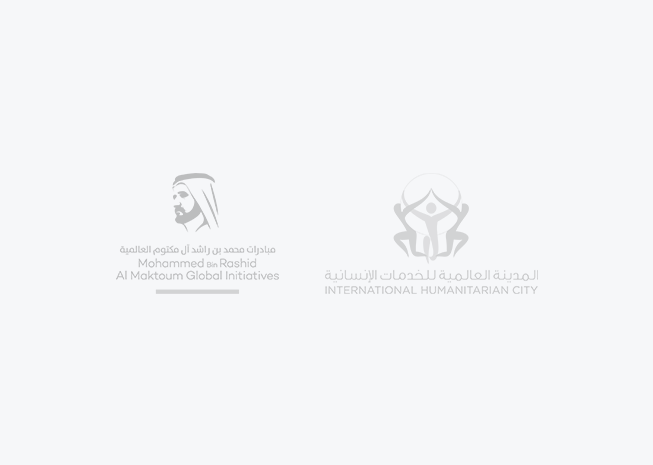
1 – Rainfall, disease, hitting refugee camps in Kenya, Ethiopia
More than a month after the kidnapping of three aid workers in Kenya’s Dadaab
refugee complex, insecurity continues to affect aid efforts. The situation is being
exacerbated by heavy rains and accompanying risks of waterborne diseases.
Nearly 100 additional Kenyan police have been deployed in the camps in the last
month. UNHCR is supporting them with vehicles, shelter and telecommunications
equipment. Together with our partners, we are exploring options to gradually
resume full operations despite continued security incidents in and around Dadaab.
In the meantime, refugees are still receiving life-saving aid, namely food, water and
health care.
The situation has been complicated by an outbreak of cholera in the camps, which
is believed to have started among new arrivals who had most likely acquired it in
Somalia or en route to Dadaab. Rains and flooding had affected the trucking of
water to parts of the camps, and we fear some refugees resorted to using unsafe
water from flooded areas.
There are now 60 cases in the camps, including 10 laboratory-confirmed cases and
one refugee death. To manage the outbreak, UNHCR and partners have set up
cholera treatment centres for severe cases. Most cases can be managed through
oral rehydration solutions (ORS) that can be given at home or at the health posts.
We are working with UNICEF and the Ministry of Health to train health workers in
the community-based management of diarrhoea so that patients can begin
treatment at home.
We have increased levels of chlorine, which kills cholera-causing bacteria, at water
points in the camps. These are monitored to make sure they are maintained at the
correct levels. We are also promoting hygiene practices among the refugees,
especially the use of latrines and hand washing with soap. Each refugee received
250 grams of soap with the latest food distribution and this will continue monthly for
several months.
In Ethiopia’s Dollo Ado area, a nutrition survey at the Kobe and Hilaweyn camps
has found high levels of malnutrition among children under five years of age.
Refugees at both camps arrived from Somalia in extremely poor health condition,
with many families losing children to malnutrition en route or after arrival in Ethiopia.
Health and nutrition programmes have been set up by a range of experienced
partners to address malnutrition, especially among the youngest children, but
progress has been slow, as this survey confirmed.
However, the number of deaths among children under five has decreased
dramatically compared to the very high level seen at the height of the refugee influx
this summer. This reflects improved access to quality health care and nutrition
services, as well as improved water and sanitation facilities. UNHCR is leading the
coordination of a nutrition response to the survey’s findings.
Meanwhile, intermittent downpours in Dollo Ado continue to cause flash floods in
the area. The airstrip was hit by floods in the past four days and has subsequently
remained out of service.
Nonetheless, work continues on the fifth refugee camp in the area, Bur Amino. The
ground is rocky and this slows down the digging of latrines, a minimum number of
which must be in place before refugees can be relocated from the transit centre.
More than 7,600 recent arrivals from Somalia are now encamped at the transit
centre, where they receive basic shelter, relief items and hot meals.
2 – UNHCR survey of previously isolated IDPs in CAR finds acute hardship
A UNHCR-Danish Refugee Council survey of displaced civilians near the town of
Ndélé in northern Central African Republic has found acute hardship, including a
high incidence of child or teenage marriage and widespread use of children as
labour.
The survey covered 300 families from a population of 17,000 people in the area.
One in five families reported having lost at least one family member during the first
half of 2011 to insecurity, a lack of health services, or shortages of food. Among
children between the ages of six and fifteen, 32.5 percent were being used as child
labour.
Among girls between the ages of 12 and 17, thirty percent had been sold into
marriage. IDP families told UNHCR that they married their underage daughters to members of the host communities and sent children to farm and fish for these communities in exchange for housing, food or money. UNHCR staff also received reports of gang rape by armed groups.
The survey was carried out mainly between May and September, and will be
extended to more villages in the region. Displaced people in the area had almost no
access to humanitarian help before June this year when a ceasefire was signed
between rebels of the Patriots’ Convention for Justice and Peace – one of the main
rebel factions in the area – and the CAR Government. Before the peace agreement,
the only civilians able to benefit from humanitarian assistance were those who
managed to reach Ndélé town.
UNHCR hopes that the improved security will allow for a strengthened UNHCR
presence in this part of the CAR to respond to the protection and assistance needs
of the displaced populations. So far, UNHCR staff have been conducting missions
to the area from our office of in Kaga Bandoro, 350 kilometers further southwest.
The journey to Ndélé takes around 11 hours, contributing to difficulties in delivering
aid.
Ndélé is located in the prefecture of Bamingui Bangoran, around 700 km from
Bangui, the CAR capital. It was once considered the country’s breadbasket, but
due to the multitude of rebel groups and armed banditry since 2005, many of its
residents have been reduced to living in the bush, unable to do farming.
In CAR, UNHCR assists more than 176.000 IDPs and some 20.000 refugees mainly
from Sudan’s Darfur region and the Democratic Republic of Congo.